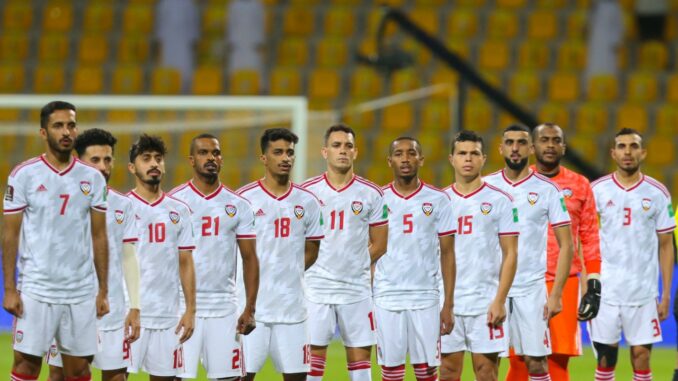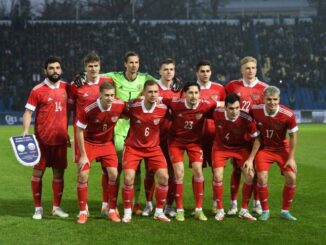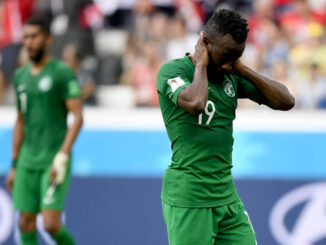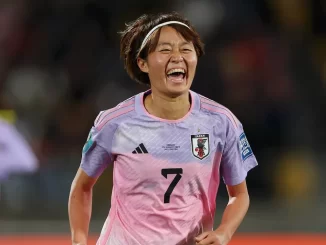
“Those who cannot change their minds, cannot change anything,” goes the quote attributed to Irish playwright George Bernard Shaw.
Words of wisdom that might as well be printed on the gates of the UAE Football Association building in the tranquil Dubai suburb of Al Khawaneej, for that the powers that be at the UAE FA did change their mind; fighting the temptation of pride and the Middle Eastern tradition of keeping face to U-turn on a high-profile decision, and were rewarded big for their backtracking.
The man at the heart of the tale of national humiliation, sacking, re-appointment and vindication is 2010 FIFA World Cup finalist manager Bert van Marwijk. First appointed as UAE coach following one of the lowest moments in the nation’s sporting history; a 4-0 home thrashing in front of 38,000 stunned fans by neighbour-turned-political foe Qatar in the grandest of stages, the 2019 AFC Asian Cup semi-final.
Tasked with picking up the pieces after Alberto Zaccheroni’s undignified departure, Van Marwijk set out to steady the ship, while initiating transition from a golden generation that has over the past decade taken Emirati football to heights unprecedented since the early 1990s.
Just as with his past international projects with his native Netherlands and in Saudi Arabia, a clear playing system was starting to develop, new blood being injected in the team as Van Marwijk found balance between instant results and long-term success, but a date with the nemesis came too soon for his under-construction side.
With just ten months gone, and the nation still healing from the damage of that night at Mohammed bin Zayed Stadium, the UAE were drawn against Qatar in the group stage of the regionally coveted Gulf Cup of Nations. The campaign started with a solid 2-0 win over Yemen, but a subsequent defeat to Iraq set up a do-or-die encounter against the tournament hosts in the final matchday of the group.
Whether it was the work of the football Gods or more sinister powers, the now Asian champions would be taking on their rivals on a special date for the Emiratis – 2 December; the day on which seven small sheikhdoms came together to form the United Arab Emirates in 1971, a union Qatar notably opted out of, charting its own path.
Every Emiratis worst nightmare came alive on the night, with Qatar running riot again. Four goals to two was the final result, ushering the UAE’s exit from the Gulf Cup. It is in moments like this that the logic of planning, stability and long-term projects gives way to hurt pride and with it kneejerk decisions, and on this instance, it was van Marwijk who was made the scapegoat.
It took 12 months, a pandemic, two ill-fated managerial appointments in Ivan Jovanovic and Jose Luis Pinto, but the U-turn was made, and the former Australia boss was back at the helm, with a stronger, more strategic mandate.
Once more, Van Marwijk found the UAE in a precarious situation, having lost two of their first four matches in the Asian Qualifiers, but with six months ahead to prepare and the bonus of three naturalised players added to his pool in the form of Brazil-born wingers Fabio Lima and Caio Canedo and Argentina-born veteran striker Sebastian Tagliabue.
“Good judgement comes from experience, and experience comes from bad judgement,” it is said, and for the silver haired Dutchman, the troubles of 2019 partially stemmed from his choice of an inexperienced center-half pairing in Mohammed Al Attas and Khalifa Al Hammadi, who while spectacular for league-winning Al Jazira, were often found needing the experience of a leader in the form of Milos Kosanovic at club level.
And with a World Cup qualification campaign to salvage in the short term, he handed a starting role and the captain’s armband to 36-year-old Waleed Abbas, and partnered him with 28-year-old Sharjah captain Shaheen Abdulrahman, relegating his young centre-backs to a bench role.
On the flanks, it was an uncharacteristically bold choice from Van Marwijk, who finally gave Al Nasr’s talented, yet controversial, left-back Mahmoud Khamis his chance at international level and doubled up on attacking quality by utilizing Bandar Al Ahbabi, often deployed as a right winger for Al Ain, at right back.
The biggest headache of the previous few years for consecutive UAE managers was finding the right balance between the abundance of attacking talent and the need for steel to protect a hitherto leaky backline. In a man he handed his debut to in his first stint, Van Marwijk found the centrepiece to his midfield jigsaw. 23-year-old Abdallah Ramadan had since gained international experience, excelling for the UAE in the AFC U23 Championship Thailand 2020 and grew into one of the league’s finest players, leading Al Jazira to the title.
A perfect blend of tenacity and drive, Al Wasl’s Ali Salmeen was preferred to Al Ain’s Ahmed Barman in the anchoring role, while the telepathic pairing of Khalfan Mubarak and Ali Mabkhout were asked to replicate their club form in attack, flanked by Lima and Caio, long-term Al Wasl teammates before the latter’s move to Al Ain.
A fixed starting XI and a clear playing philosophy went a long way, delivering three wins on the trot, 12 goals scored and just one conceded as the Whites brushed aside Malaysia, Thailand and Indonesia, but that was not enough to dethrone Vietnam. For that, a win on the final matchday against the group leaders was needed; that too against a side that had beaten them in the reverse fixture.
Facing his biggest challenge yet, van Marwijk rose up to the occasion, tinkering around with his line up and introducing the more defensive minded Majed Hassan alongside Salmeen to stop the double act of Nguyen Quang Hai and Nguyen Tien Linh. The versatile and mercurial Ramadan was pushed into the most attacking midfield role with Mubarak left on the bench.
The Dutchman’s trickery paid off as Ramadan supplied a world class overhead pass for the marauding Salmeen to control and fire home from inside the box at the half-hour mark. It was again Ramadan creating the magic a few minutes later as he fed Khalil Ibrahim, who replaced Caio on the left wing, with the Al Wahda man rounding the Vietnamese goalkeeper and winning a penalty that Mabkhout converted coolly for his 76th international goal.
The tie was all but settled five minutes after the restart as Khamis popped up in an unlikely position to head home from point blank following Lima’s saved header. Even a late double salvo from Tien Linh and Tran Minh Vuong could not deny the Whites top spot and a place amongst the final round of the qualifiers alongside 11 other sides vying for a place in Qatar 2022.
Van Marwijk’s side might not be perfect and the road is still long if they are to reach the level of Asia’s top sides, but if history is anything to go by, Mabkhout and co will be ones to watch and their supporters might have reason to be excited about the prospect of a return to the world stage 32 years after Italia 90.
Should that happen, not only would the UAE football administrators keep face, but their reflection and change of mind would have indeed brought about a real, lasting legacy of success.
Photo: UAEFA




